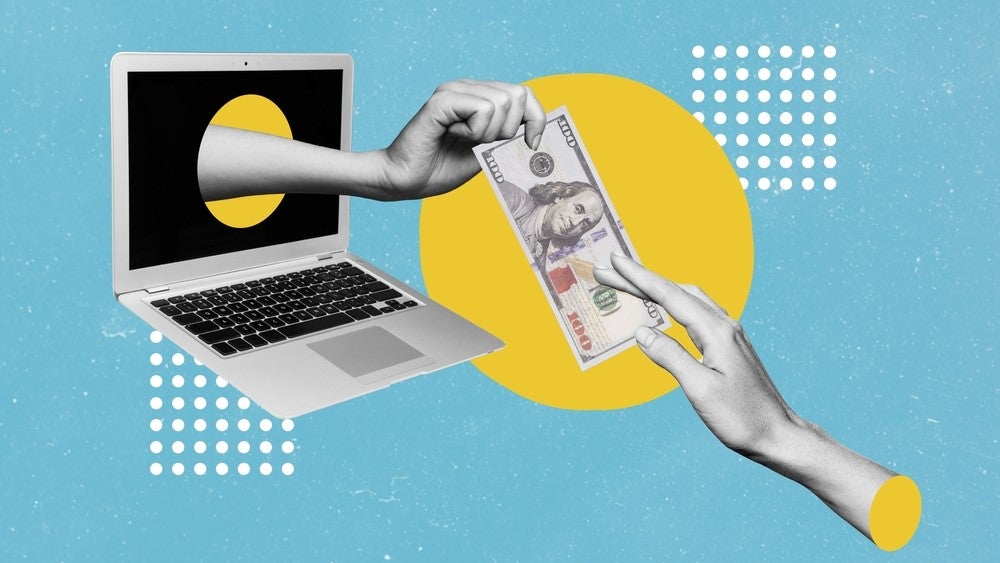
Digital cash, also known as central bank digital currency (CBDC), is issued by a country’s central bank rather than a commercial bank. It is a digital currency that can be used in the same way as physical banknotes but without the physical element.
The potential introduction of digital cash is being piloted, developed or researched by governments in 100 countries around the world, according to US think tank the Atlantic Council, with a further 11 having already launched a CBDC.

Access deeper industry intelligence
Experience unmatched clarity with a single platform that combines unique data, AI, and human expertise.
There are several reasons that the widespread introduction of CBDC looks likely, with the primary one being the prevalence of digital payments, compared with old-fashioned cash.
Is the introduction of digital cash inevitable?
In a consultation response published in January 2024, the Bank of England considered the reasons why digital cash looks to be almost inevitable, stating: “The way payments are made, and the type of money used to make them, is changing …
“A digital pound would help to ensure that central bank money remains available and useful in an ever more digital economy, continuing to support UK monetary and financial stability. It would also provide a public platform for private-sector innovation, promoting further competition, efficiency and choice in payments.”
The adoption of digital currency appears to be necessary for governments looking to remain competitive. As GlobalData analyst Arnie Cho explained: “There is no choice but to go that way. If a government doesn’t engage in CBDC, it will be left out of the future of global financial system.”

US Tariffs are shifting - will you react or anticipate?
Don’t let policy changes catch you off guard. Stay proactive with real-time data and expert analysis.
By GlobalDataWhat are the privacy concerns?
Among the concerns raised about digital cash in some quarters is privacy due in particular to it being more trackable than physical cash.
“Rather than privacy concerns, it’s more realistic to call them ‘perceived concerns’,” said Cho. “Essentially, people are afraid of their privacy being exposed to the government – how they spend money, where they spend, what they buy. Ever since payment card transactions began, there has been no privacy. Your bank and the credit card scheme (Visa, Mastercard, etc.) will know where you spend money.”
However, Cho pointed out that the concerns around digital cash are comparable to the other privacies sacrificed in favour of convenience.
“If you store your photos on Apple or Google’s cloud, send emails through their platform, use Facebook, Instagram or other social media, then they know all your private life, but users believe or perceive that it is secure and private,” he said.
There have also been concerns raised around the potential for hacking as cybercriminals become increasingly adept at gaining access to digital wallets. Phishing and malware attacks are potential avenues for bad actors, and avoiding the dangers requires serious cybersecurity considerations. The International Monetary Fund (IMF) warned of the risks associated with the early domestic development of CBDCs.
It wrote: “Fragmented international efforts to build CBDCs are likely to result in interoperability challenges and cross-border cybersecurity risks. Countries are understandably focused on domestic use, with too little thought for cross-border regulation, interoperability, and standard-setting. Regardless of whether the United States decides to deploy a CBDC, as issuers of a major world reserve currency, the Federal Reserve should help lead the charge toward development of global CBDC regulations in standard-setting bodies. International financial forums, including the Bank for International Settlements, IMF, and G20 have a similarly critical role to play.”
Are the concerns valid?
The concerns about privacy are founded, but the implementation of privacy protections will offer some safeguarding for users. The World Economic Forum has made clear that banks have a duty to put protections in place, writing: “[Banks] need to explain how transaction data is being anonymized and aggregated to protect individuals’ identities and activities.”
“Legal frameworks will also be needed to strictly limit any government’s ability to access and use transaction data without proper justification or oversight. These steps will help ensure not just that privacy is embedded in CBDCs, but that trust is too.”
While the concerns around the safety of digital cash are not unfounded, for most people they should not be an issue. They are an issue primarily for the likes of people under oppressive regimes or involved in criminal enterprise – the latter of which the increased tracking would actually help to catch.
For those not in such situations, Cho commented: “Users just have to trust the government … it has a lot to do with getting people used to it and understanding how privacy really works. Previously, the issue of privacy in the banking and payments sector hasn’t really been transparent and a lot of the understandings were actually perceptions created by the service providers.”







